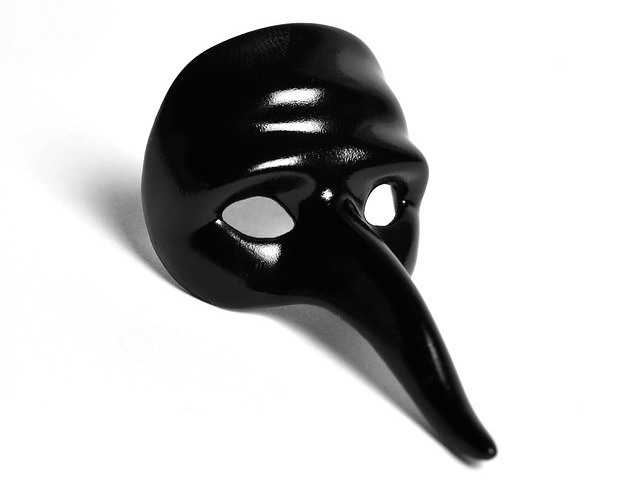My all-time favorite piece of advice to APs: keep your mouth shut.
No, I’m not suggesting you should sit in silence, playing in an expressionless an robotic manner. Good acts are valuable, and cultivating the right table image can pay dividends. Emphasis: good acts; the right table image.
New APs tend to spend a lot of time thinking about their acts, but much of that is time wasted. In fact, a lot of the stuff that gets utilized by new APs under the guise of presenting a carefully calculated image to the casino can actually be a red flag.
How many 20-somethings in suits, dressed to the nines, do you see in casinos betting money? I can almost guarantee you that anyone fitting this description that’s not betting quarters or less is an AP. Bonus points if they’re wearing a suit with slip on sneakers.
Even more of a red flag is the table talk that gets passed off as an act. You want the casino to think you’re a degenerate? Then play like one! Your endless remarks about the “flow of the cards” and other such nonsense only serve as an indicator that you’re an observant player who is paying attention to the game.
Civilians that do this get the pass because their style of play is a clear indicator that they believe what they say. When APs engage in voodoo theories, they’re eventually forced to contradict their premises. They’re setting themselves up to get caught in a lie.
I recently played at a table with a couple of players who were obviously not complete squares. They weren’t APs, but they likely had a small edge on the game they were playing. The decision-maker in this crew absolutely would not shut up, commenting on every turn of the cards and spouting off countless inane theories that he clearly didn’t actually believe.
Not five minutes after carefully “explaining” to his partner that dropping his bet size was a good idea because of the current flow of the cards, this player went on a rant about how gamblers shouldn’t be superstitious. His commentary and inevitable self-contradiction made their play more conspicuous, not less.
The thing is, acting is actually really hard, and most of us aren’t at all good at it. Every time we make a statement that we don’t believe, or give a false answers to a question, we’re increasing the probability of getting caught in a lie. When we wear ridiculous costumes or indulge in over-the-top acts, we’re only fooling the simplest of the simple. There are lots of people out there that can spot a phony, and some of those people also happen to work in casinos.
If the pit boss asks where you’re from and you answer with a city you know nothing about, you’d better hope they—or anyone else at the table—are not familiar with it either. If someone asks what you do for a living and you respond with a job you can’t speak about in great detail or that doesn’t match up with your table image, then you’re asking for trouble. If your act is far removed from your real personality and you’re not an accomplished method actor, then I’d bet you’re fooling people as well as you may think you are.
Instead, I recommend keeping your mouth shut. Talk about stuff that you know and are legitimately interested in. When you feel compelled to toss some nonsense into the conversation, think twice. You’ll get away with it most of the time, but eventually you’ll put yourself in a tough spot, and one that’s almost certainly unnecessary.
In my opinion, the best acts are the ones that are hardly acts at all. That’s not any new insight—I’ve heard and read the same from multiple APs. But it’s absolutely true: if your act is just a slightly different version of your actual self, then you’re far less likely to get caught in a lie.
Casino surveillance folks have an acronym for players and actions that appear a little off—JDLR: just doesn’t look right. Visually, something is out of place, and operators with good JDLR sense will take a little extra time to watch someone if they set it off.
At the tables, the words that come out of your mouth are the actions that set off JDLR alarms.
A fidgety character betting minimum on a table that’s bleeding chips to a big play, while compulsively looking up at the cameras is going to get a closer look from an alert surveillance operator. A kid at the table talking up an implausible career and expounding on various gambling superstitions while playing flawless basic strategy isn’t going to smell right to an alert dealer, or floor person, or pit boss, or civilian eager to poke holes in the story once the player leaves the table for a bathroom break.
Keep it simple, stick with what you know, and unless you’re extremely confident that what you’re saying doesn’t carry the risk of setting off any bullshit detectors, just keep your mouth shut.
_____
Blake Phillips is a professional advantage player and contributing editor to AP Street. Contact him at bp@apstreet.com




May 10, 2017 @ 2:02 am
“If the pit boss asks where you’re from and you answer with a city you know nothing about, you’d better hope they—or anyone else at the table—are not familiar with it either.”
Happened to me–I’d got a player’s card using a fugazi, and the pit boss was able to bring up a nice picture of it on the computer in the pit. Turns out he was from the mid-size town named on it, and proceeded to ask me about my time there. I had to make an excuse and get real non-talkative in a hurry. Oh, well. Sometimes it’s a risk you have to take.